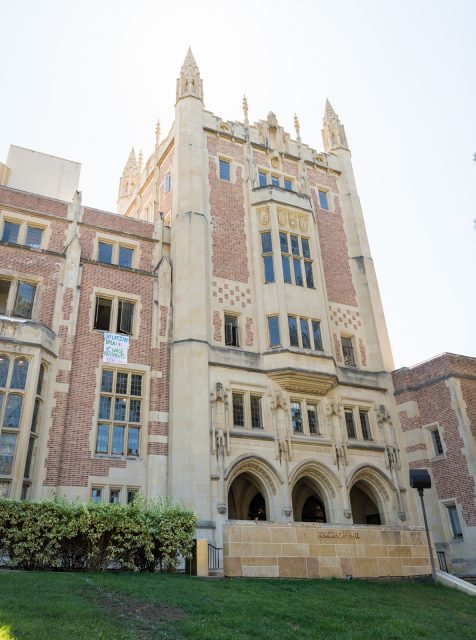The Undergraduate Students Association Council launched a new COVID-19 Relief Fund to provide emergency grants to undergraduate students who have been economically impacted by the novel coronavirus.
Several USAC offices allocated their remaining budgets to the COVID-19 Relief Fund, contributing $100,000 total, said Millen Srivastava, Financial Supports commissioner and chair of the committee overseeing the fund.
“When classes moved online and the true colors of this global pandemic were apparent, FSC and USAC knew that the financial insecurity of students would increase in unimaginable ways,” Srivastava said.
Because the FSC has one of the smallest budgets in USAC, Srivastava approached the other members of council and asked for them to collaborate on creating the relief fund so they could collectively help as many students as possible.
Twelve out of 15 offices and entities donated to the relief fund. These offices and entities are composed of the offices of the president, the internal vice president, the external vice president, the transfer student representative, the international student representative, and all of the three general representatives, as well as the Community Service Commission, Campus Events Commission, Facilities Commission, Financial Supports Commission.
Application information can be found on the USAC Facebook page.
The Student Wellness Commission is also running a separate relief program, said Student Wellness Commissioner Mihika Sridhar.
The SWC’s COVID-19 Student Relief Grant is available to all undergraduate students to apply for until May 4. The goals of this grant are similar to the goals of the USAC COVID-19 Relief Fund, as both programs aim to assist students who are in need of financial assistance because of the pandemic.
Neither of the relief funds are related to the Coronavirus Aid, Relief, and Economic Security Act, as USAC did not receive any money from the CARES Act. However, UCLA did receive more than $30 million in federal funding from the CARES Act.
The $2 trillion relief package was passed by President Donald Trump in order to assist individuals and businesses impacted by the coronavirus. Under the CARES Act, higher education institutions are given relief to provide “emergency financial aid grants to students for expenses related to the disruption of campus operations due to coronavirus.”
The USAC COVID-19 Relief Fund Committee hopes to allocate these $500 awards in the most equitable way possible, Srivastava said. Names, university IDs and emails will be hidden from the committee to preserve the anonymity of applicants when decisions on their applications are made.
The COVID-19 Relief Fund has currently received around 1,500 applications, and the committee expects it to have 500 more by the time it closes May 1. Because of this, the committee will most likely only be able to provide 10%-15% of applicants with the $500 award.
Several USAC members and members of the USAC COVID-19 Relief Fund Committee said they think there is an urgency for the grants.
“Marginalized communities on our campus are going to be disproportionately impacted by the coronavirus,” said General Representative 3 Brandon Broukhim. “It’s really important to help those communities.”
Facilities Commissioner Lily Shaw said now, more than ever, students need to come together and help one another.
“I am so thankful that my fellow council members and I were able to reallocate our budgets in a meaningful way,” Shaw said. “While the USAC COVID-19 fund is only a small fraction of relief for students, I am hopeful that organizations and administration will join us in providing various forms of support for students in need.”

